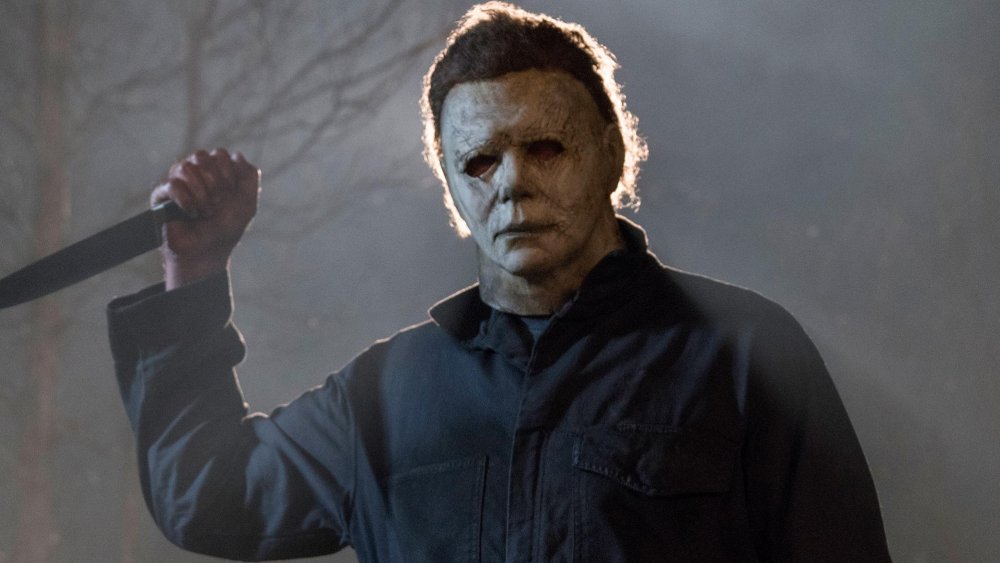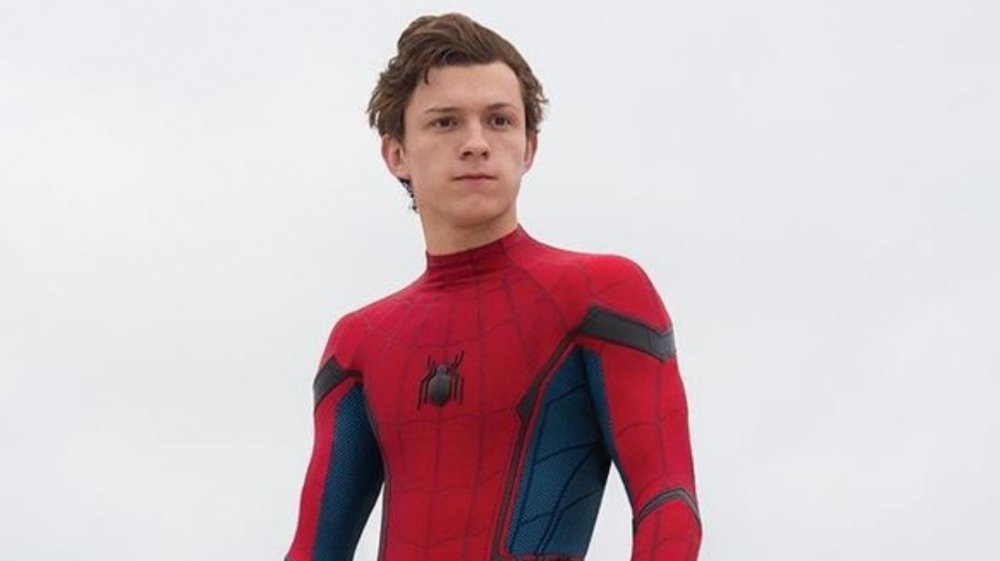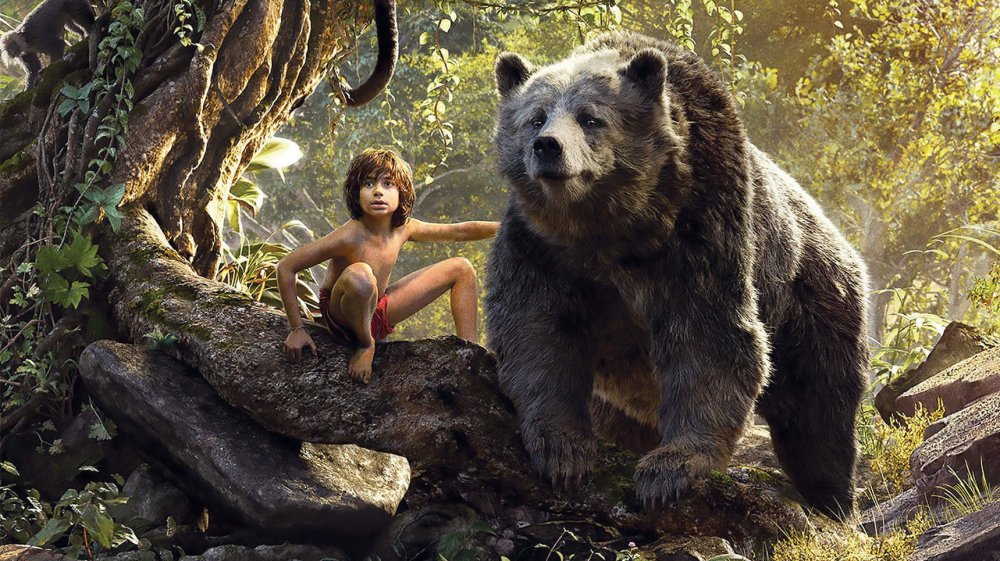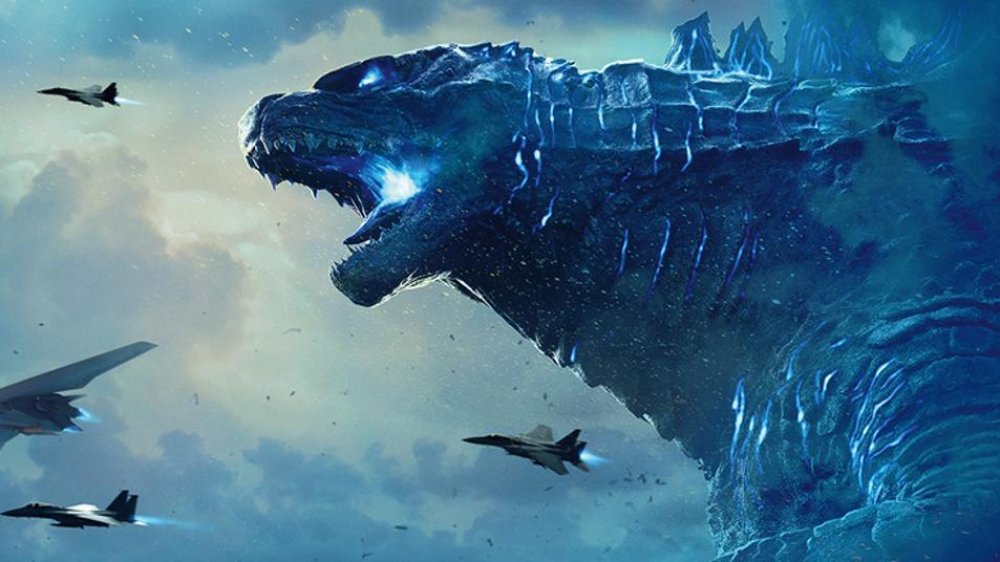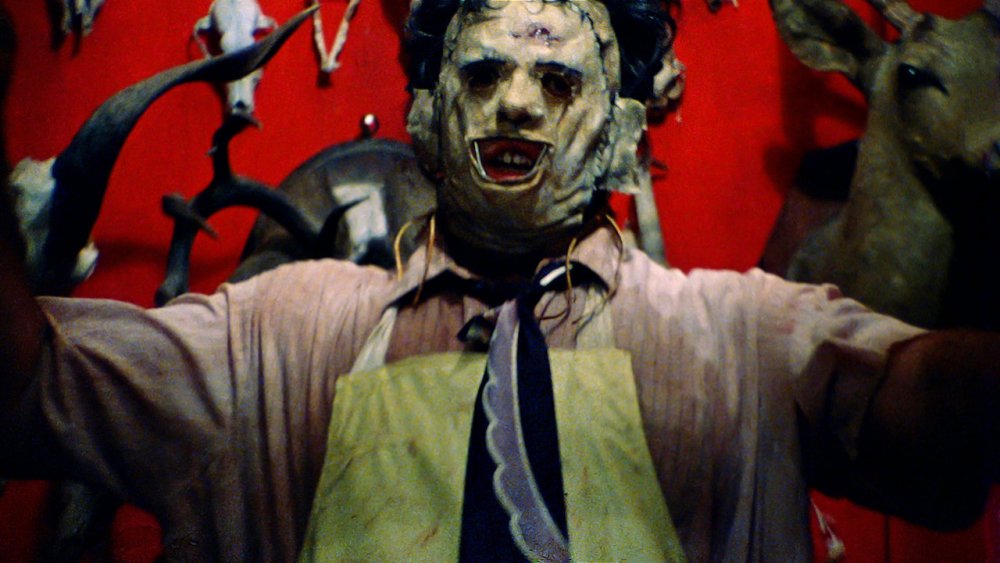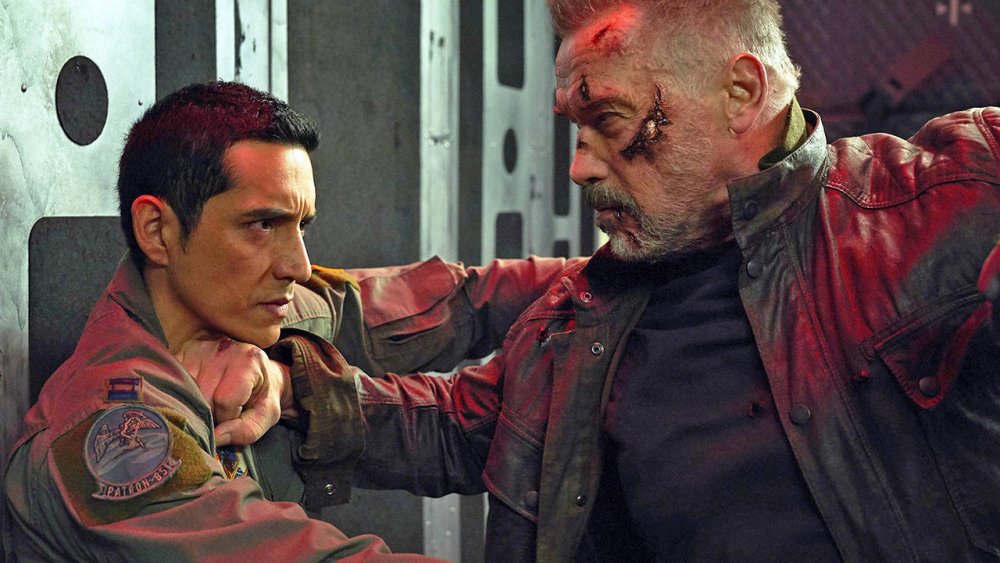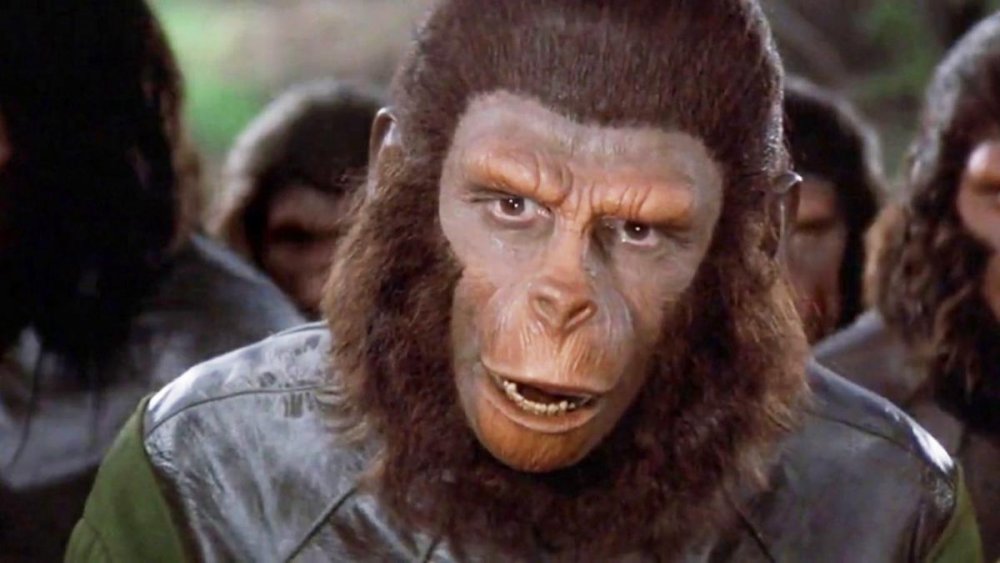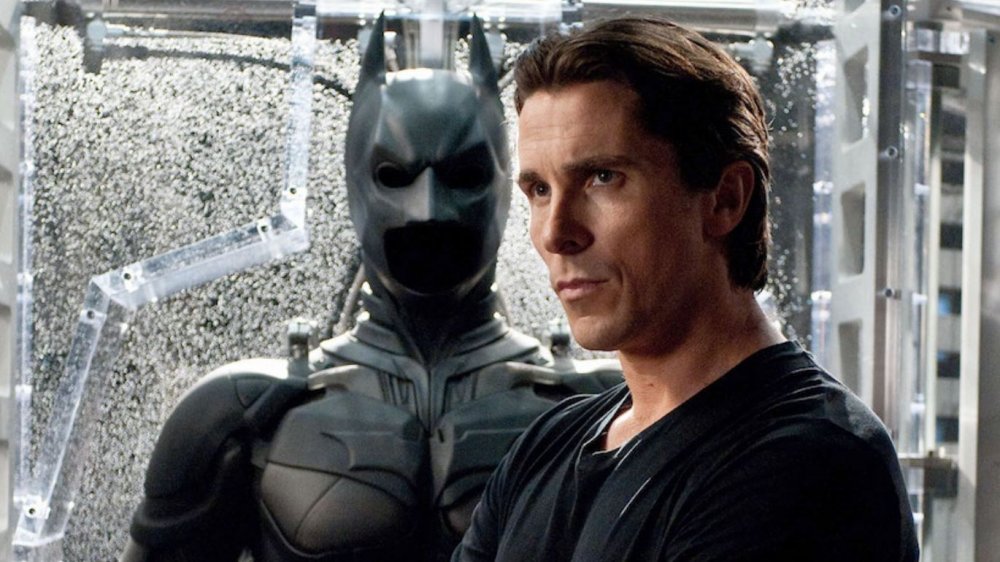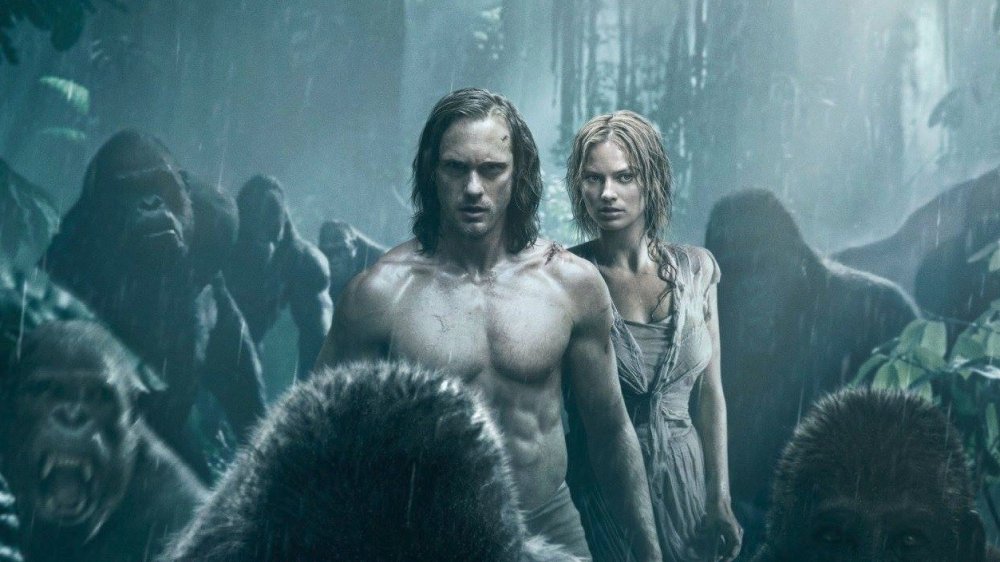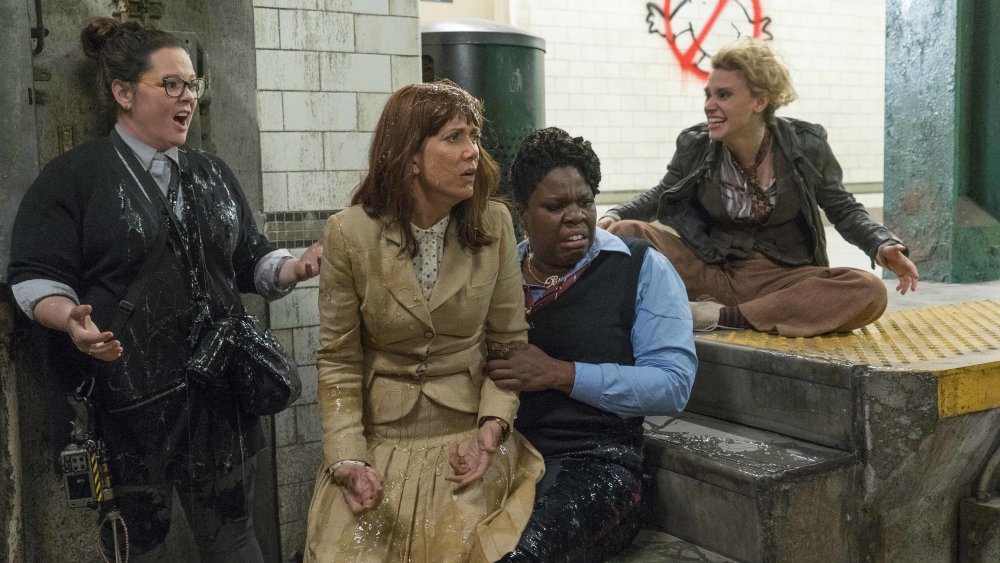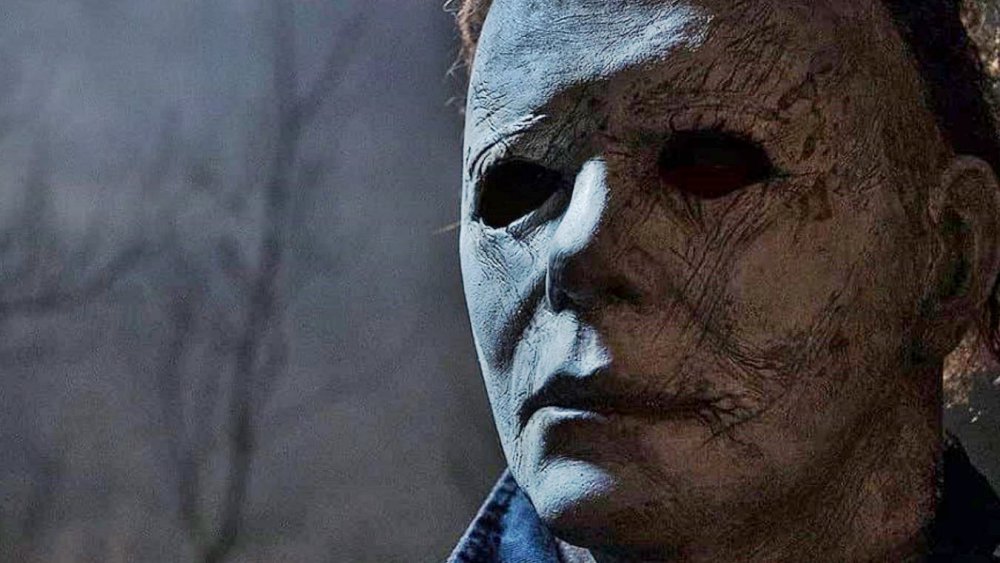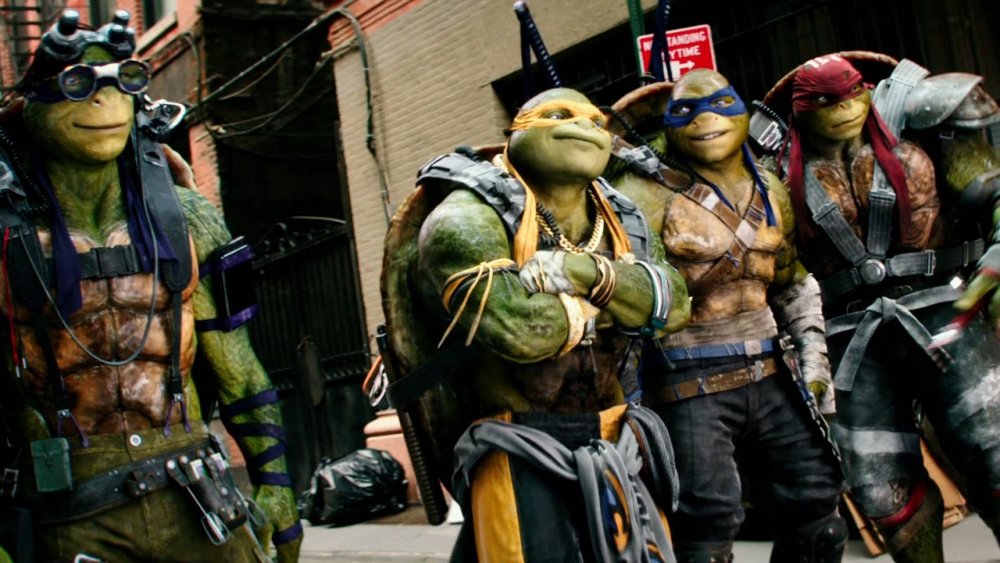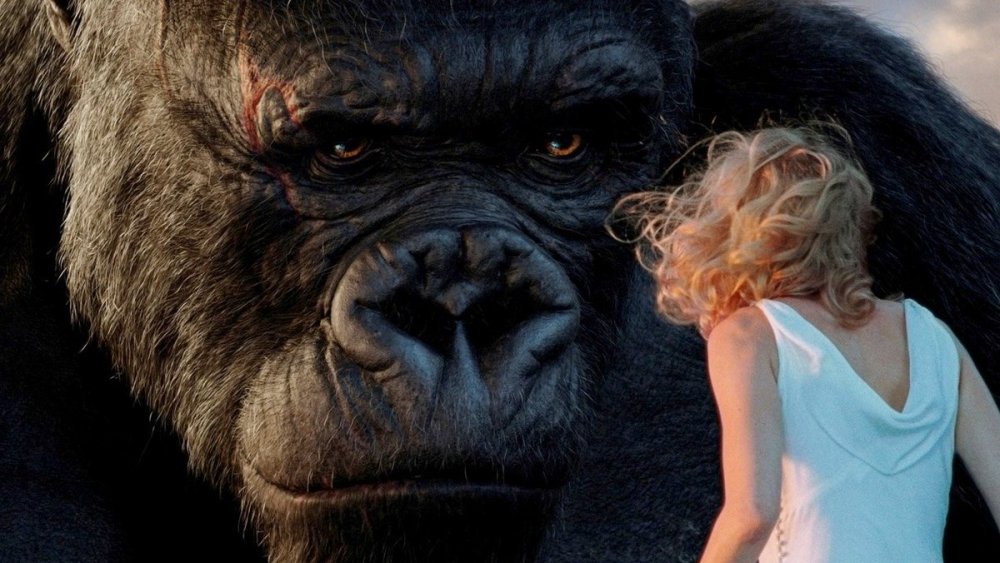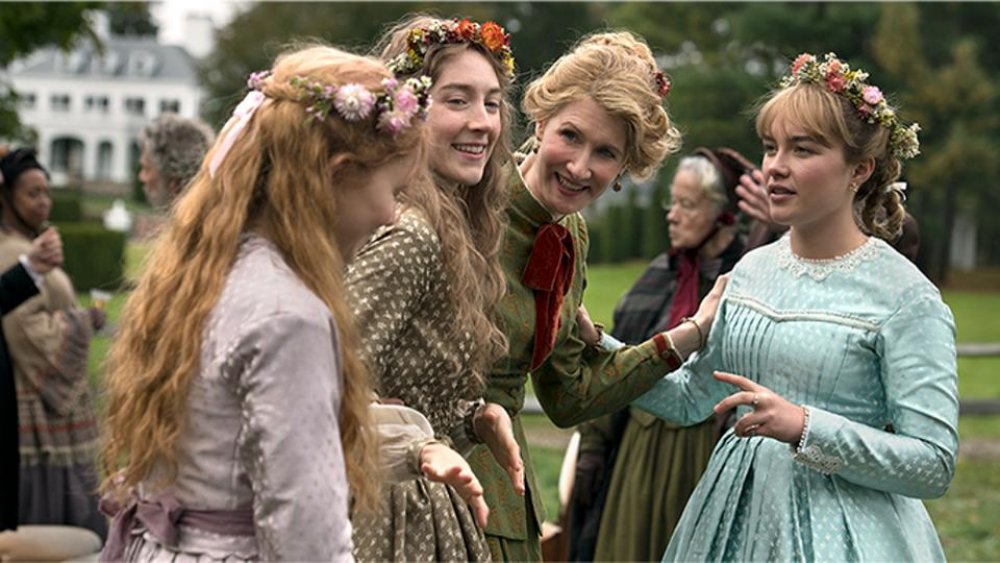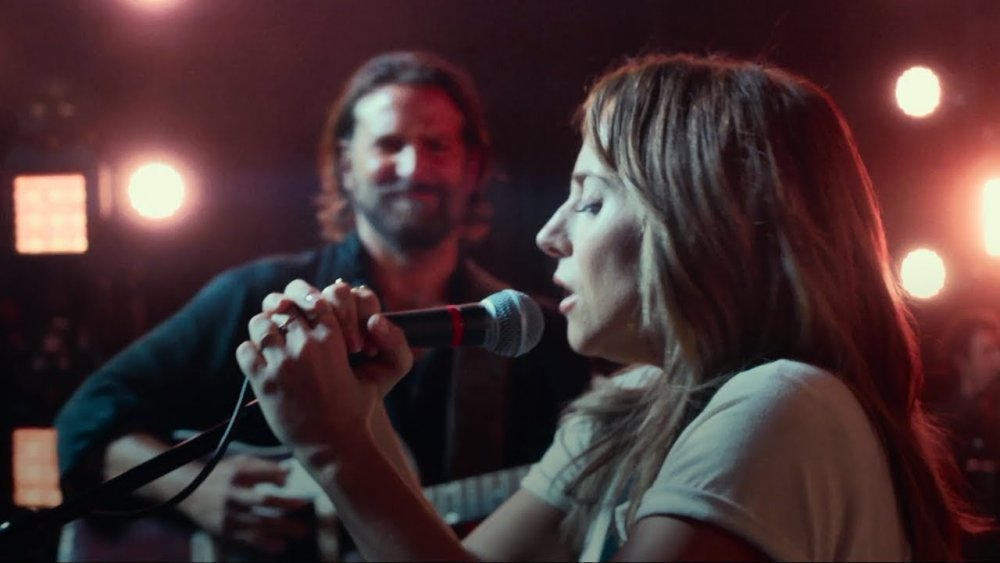The Most Rebooted Movies Ever
Reboots and remakes tend to get a bad rap. Of course, that doesn't stop Hollywood from rebooting old franchises and putting new spins on familiar storylines. Yes, people may complain that there are just too many reboots these days — but audiences still turn out in droves to see them. Despite the griping, it's clear that viewers will still come out to see their favorite characters on the big screen, time and time again.
But are reboots always a bad thing? Not necessarily. Sometimes, an older movie's world really can benefit from a little polishing. And in the hands of a different director, a particular narrative can become even more compelling. However, how many times can you reboot a certain idea before it starts to feel stale? Some studios are perfectly willing to reboot a franchise every few years or so, and no matter how many millions they spend, the law of diminishing returns is difficult to escape. Here are a few movies that have been rebooted plenty of times already — and there's nothing stopping other directors from rebooting them all over again.
Spider-Man
Spider-Man is one of the most popular comic book superheroes of all time, which is why he's had so many movies made about him. No matter how many actors swing across the big screen in that classic Spider-Man suit, the story of the teenager from Queens who learned that "with great power comes great responsibility" still captivates audiences.
It all started in the late 1970s, with the live-action TV series The Amazing Spider-Man. In the early 2000s, Sam Raimi brought the web-slinger to life for a new generation, directing three films starring Tobey Maguire as Spider-Man. Raimi's films follow Peter Parker's journey as he loses his Uncle Ben, falls for Mary Jane Watson, and fights villains like Doc Ock and the Green Goblin. In 2012, Andrew Garfield led the rebooted franchise in The Amazing Spider-Man, battling it out with the Lizard and the Green Goblin while falling in love with — and losing — Gwen Stacy.
More recently, Tom Holland has taken on the role of Spider-Man in the Marvel Cinematic Universe, and his youthful portrayal of Peter Parker quickly made him a fan favorite. He was introduced in Captain America: Civil War, struck out on his own with Spider-Man: Homecoming, and ushered in phase 4 of the MCU with Spider-Man: Far from Home. After tense negotiations between Sony and Disney, it looked like Spider-Man might be absent from future MCU films, but ultimately, they came to an agreement, so you can expect a new MCU Spider-Man film in 2021.
The Jungle Book
In 1967, the animated musical The Jungle Book introduced children everywhere to Rudyard Kipling's classic stories, with a catchy soundtrack that included infectious songs like "The Bare Necessities." Mowgli, a young boy who had been abandoned as a baby and raised by wolves, spends his time exploring the jungles of India with his friends Bagheera the panther and Baloo the bear, until the day comes when he has to decide between running wild or living among humans.
The story was originally adapted for film in 1942, but after the release of Disney's adaptation, other reboots and spinoffs were released around the world, like the Soviet film series Adventures of Mowgli and the anime series Jungle Book Shōnen Mowgli. The original story may have been set in India, but clearly, it has cross-cultural appeal. It wasn't long before a studio decided to reboot it with another live-action adaptation in 1994, but without anthropomorphic animals and sing-along tunes, this version lacked the animated version's charm.
A more faithful iteration of Kipling's original tale was released in 2016, featuring the voices of actors like Scarlett Johansson, Idris Elba, Bill Murray, and Christopher Walken. The heartwarming tale of Mowgli finding his chosen family, combined with stunning, dreamlike visuals, was favorably compared to the original Disney film. Rudyard Kipling's stories were also adapted into the 2018 Netflix film Mowgli: Legend of the Jungle.
Godzilla
For decades, Godzilla has terrorized moviegoers and crushed cities to the ground onscreen. It all began with the 1954 Japanese film Godzilla, in which the reptilian monster was disturbed by underwater hydrogen bomb testing, reflecting justified fears surrounding nuclear weapons. In the wake of the Hiroshima and Nagasaki bombings and the advent of the Cold War, Godzilla struck a chord with viewers.
A re-edited version of the film, Godzilla, King of the Monsters!, was released for American audiences in 1956, although many of the cultural and political themes in the original were lost. But Toho Studios wasn't done with Godzilla just yet — far from it. Over the following decades, they released several more Godzilla movies, expanding the universe and introducing fans to new monsters like Gigan and Mothra. While the 1998 American Godzilla flopped, its poor reception didn't end the enthusiasm for the franchise.
In 2014, another American reboot garnered more positive reviews, and by 2015, the Guinness Book of World Records announced that Godzilla had become the longest-running film franchise in history. The 2019 sequel Godzilla: King of the Monsters explores a world in which humans have to rely on the combined powers of Godzilla and Mothra to defeat an even bigger threat: King Gidorah, who aims to destroy humanity and remake the world. Keep an eye out for more epic monster battles in Godzilla vs. Kong, set to premiere in 2020.
The Texas Chainsaw Massacre
The Texas Chain Saw Massacre was produced on a small budget with unknown actors, and it's safe to say that the cast and crew had no idea that a film about a group of teenagers encountering a family of cannibals in rural Texas would turn into one of the most successful franchises in the horror genre. The original movie was released in 1974, and although the violence depicted sparked some controversy, it became a favorite amongst horror fans and spawned several sequels and reboots.
In 1995, Texas Chainsaw Massacre: The Next Generation was released, starring Renee Zellweger and Matthew McConaughey. This slasher fell somewhere between a reboot and a remake — it followed the plot of the original horror classic quite closely, but the events of the original are also referenced. A similar follow-up came along again with The Texas Chainsaw Massacre in 2013.
The franchise went in a new direction with the 2017 fright flick Leatherface, which served as a prequel to explain the origin of the series' main villain and explore questions about the nature of evil. Turns out this vicious cannibal wasn't born a mindless killing machine — he was corrupted by his murderous parents.
There are more TCM movies on the way, with another reboot planned for the future. However, judging by the mixed reviews for most of these sequels and reboots, it might finally be time to wrap up this franchise.
The Terminator
When Arnold Schwarzenegger said "I'll be back" as the Terminator, he clearly meant it — there are still plenty of Terminator fans around, and new Terminator films keep the franchise going. The first Terminator film came out in 1984, with James Cameron at the helm. This sci-fi action movie explored a dystopian future where machines have taken over the world, controlled by the artificial intelligence network Skynet — which ultimately aims to annihilate humanity.
Over the next three decades, three sequels were released — and although sequels are often unfavorably compared to the original, the Terminator follow-ups were generally well-received. There was even a spinoff TV series that ran from 2008 to 2009, titled Terminator: The Sarah Connor Chronicles.
In 2009 and 2015, the franchise attempted to expand and untangle its complex timeline with Terminator Salvation and Terminator Genisys. Schwarzenegger returned as the Terminator for the latter film, but that didn't save it from poor reviews. Even Emilia Clarke's performance as Sarah Connor couldn't salvage Genisys, and planned sequels were scrapped.
But in 2019, Terminator: Dark Fate was released, the first in a potential new trilogy of Terminator films. In this installment, Sarah Connor must team up with Schwarzenegger's Terminator (now posing as a human named "Carl") to protect Dani Ramos, Skynet's latest target. There is no sequel in production just yet, but it's a likely possibility — Cameron is already thinking about ways he can "reinvent" the story again.
Planet of the Apes
Only a few years after being published, the 1963 French novel Planet of the Apes was adapted for film. Audiences were captivated by the fictional world in which human beings and apes battled for control of their planet, and the story inspired a long-running movie franchise. More films and two TV series followed, but these four sequels couldn't measure up to the original in terms of critical and commercial success.
After the release of a 2001 remake, it was finally time for a total reboot. In 2011, Rise of the Planet of the Apes kicked off a new series for the franchise. A hyper-intelligent ape named Caesar is born to a chimpanzee who was used in drug trials for a new Alzheimer's treatment. As he discovers exactly what he's capable of, he fights back against the constraints imposed by humans and leads an ape uprising. The 2014 follow-up, Dawn of the Planet of the Apes, explores the aftermath of the uprising and the ensuing plague, following Caesar as he attempts to maintain control over the rebellious apes. In the third sequel, War for the Planet of the Apes, Caesar must go up against another enemy — remaining factions of the US military.
All three films were praised for their visual effects and engaging plots. A fourth film in the rebooted series is in the works. Based on the response to these films, this was a franchise worth reviving for the modern era.
Batman
How many times can we return to Gotham? The story of Batman has been rebooted for television and film on countless occasions. And even when Bruce Wayne himself isn't onscreen, supporting characters from this universe, like the Joker, make appearances in other movies.
The very first adaptation of the Batman comics for film was the 1943 film Batman. Several followed over the next few decades, including the 1997 live-action film Batman & Robin, which was widely panned despite its star-studded cast — including big names like George Clooney and Arnold Schwarzenegger — and is commonly regarded as one of the worst films of its era.
Perhaps the most famous version of Batman is Christian Bale's portrayal in Batman Begins, The Dark Knight, and The Dark Knight Rises, alongside the late Heath Ledger's legendary performance of the Joker in The Dark Knight. In crime-ridden Gotham, Batman faces one ethically fraught situation after another as he attempts to restore order. Bale and Ledger's masterful interpretations of these famous rivals established that superhero movies were worthy of serious critical consideration, and Ledger's posthumous Oscar win for Best Actor represented the first for a superhero film in any of the major Academy Awards categories.
In recent years, Batman has graced the big screen again in Batman vs. Superman and Justice League. And he'll be back once more in 2021 with The Batman, starring Robert Pattinson as a young Bruce Wayne.
Tarzan
In the late 1800s, Edward Rice Buroughs published his first novel about Tarzan, the man raised by apes whose life in the wild is turned upside down when he falls in love with Jane Porter and must choose between remaining in the jungle or adapting to civilization. In 1918, the story was adapted for film for the first time with the silent movie Tarzan of the Apes. Other silent films followed, and the first adaptation with dialogue, Tarzan the Tiger, was released in 1929.
Over the next few decades, more Tarzan movies were released, but the classic tale found a whole new audience with Disney's animated musical adaptation in 1999. Phil Collins' soundtrack added a whole new dimension to the story. In Disney's retelling, Tarzan encounters Jane and her father when they visit the jungle to study the gorillas — and after fighting off Clayton, the hunter who wanted to seize the animals for his own benefit, they decide to stay.
The popularity of the animated film introduced the character to younger generations, and a few years later, the musical Tarzan began running on Broadway. In 2016, a new live-action adaptation of the story was released, starring Alexander Skarsgard as Tarzan and Margot Robbie as Jane. This adaptation explored Tarzan's life in civilization as "Lord Greystoke" and his eventual return to Africa — but with a darker, more serious tone.
Ghostbusters
The 1984 film Ghostbusters became a cultural phenomenon — it wasn't quite a horror flick, but it was definitely a comedy, and Ray Parker Jr.'s catchy theme song became a massive pop hit. Two TV series followed, and a sequel to the original movie was released in 1989, but with a mediocre reception compared to the original, for a long time it looked like there wouldn't be a third Ghostbusters film.
In 2016, the franchise was revived with a different kind of reboot: this time, the Ghostbusters were an entirely female crew. Despite the casting of talented comedic actresses like Kate McKinnon, Leslie Jones, Melissa McCarthy, and Kristen Wiig, the film received mixed reviews — and its release was preceded by intense online controversy and backlash.
However, the revived interest in the Ghostbusters franchise paved the way for another movie. Bill Murray, Dan Aykroyd, and other members of the original cast decided to step up and finally shoot that sequel to the 1989 film. Ghostbusters: Afterlife will be released in 2020, with a mixture of old and new cast members. Get ready to see Finn Wolfhard and Paul Rudd joining the crew, while Murray, Aykroyd, Ernie Hudson, Sigourney Weaver, and Annie Potts return to their previous roles. With this upcoming summer blockbuster, everyone's favorite Ghostbusters will finally be back in action.
Halloween
The original Halloween is a classic slasher movie: released in 1978, it follows the story of Michael Myers, who escapes from a mental institution on Halloween night and goes on a killing spree. Today, there is no mistaking Michael's iconic white mask, and you're bound to see a few trick-or-treaters and Halloween partygoers donning it every October.
As a standalone film, Halloween was sufficiently terrifying — it didn't necessarily need to be expanded on. Yet it was followed by seven sequels. And that wasn't the end of the franchise, either.
In 2007 and 2009, Rob Zombie directed Halloween and its sequel H2, which closely followed the plot of the original while further exploring Michael Myers' psyche. Another film in the franchise, titled Halloween, was released in 2018. This version was meant to serve as a sequel to the 1978 film, wiping out the storyline of the other sequels. It received surprisingly positive reviews — perhaps the return of Jamie Lee Curtis and Nick Castle in their original roles as Laurie Strode and Michael Myers helped. Curtis played a convincingly played an older, PTSD-stricken Laurie, and Castle's portrayal of Michael Myers can still keep you up at night.
Two more films, Halloween Kills and Halloween Ends, are already planned for the future. Hopefully, these installments will serve as a fitting end for the franchise.
Teenage Mutant Ninja Turtles
The characters in Teenage Mutant Ninja Turtles originated in the comics, but most '90s kids know them from the popular animated TV series that ran from 1987 through 1996. The concept of crimefighting turtles who all happened to be named after famous Italian artists sounds strange on paper, but on TV, it was a hit. Even after the original series wrapped, new episodes have continued airing under different iterations.
The turtles have also starred in several films, with three live-action TMNT movies released in the early '90s. A computer-animated adaptation, TMNT, was released in 2007, and in 2014, the series was rebooted with Teenage Mutant Ninja Turtles, which followed the turtles as they fought to save New York City from a deadly plague.
Despite the lackluster critical reception for the rebooted franchise, Teenage Mutant Ninja Turtles: Out of the Shadows followed it up in 2016 — this time, finding the turtles up against their old nemesis Shredder, putting a stop to his plans for world domination. Poor performance at the box office meant that there wouldn't be another film in that particular series, but this isn't the last time we'll see these turtles onscreen, as a seventh film is apparently in development.
King Kong
The image of King Kong on top of the Empire State Building is unforgettable — and by now, we've seen similar visuals in a few different films. The original, released in 1933, is a classic — Kong is an enormous, gorilla-like monster who lives on secluded Skull Island before being discovered by a film crew and becoming infatuated with a beautiful actress, which leads to his eventual demise in New York City.
A sequel was released only a few months after the original premiered, and in later years, there was a crossover with another famous monster titled King Kong vs. Godzilla. A remake came out in 1976, and the story was re-introduced to today's audiences with another remake in 2005, starring Jack Black and Naomi Watts. This remake was generally faithful to the original, and the modern special effects gave the monster an intimidating sense of scale — seeing the massive, wounded Kong fall to his death from the Empire State Building was even more dramatic with the help of CGI.
The franchise was rebooted yet again in 2017 with Kong: Skull Island. In this reboot, a group of scientists and Vietnam War soldiers end up in the middle of a battle between Kong and the ancient Skull Crushers. The final scene hints that other monsters are out there, and we'll be seeing a sequel in 2020: Godzilla vs. Kong.
Little Women
Louisa May Alcott's 1868 novel Little Women has been adapted for film, TV, and theater. The classic coming-of-age tale follows the lives of the four March sisters, Meg, Jo, Beth, and Amy, as they grew up. It's a story that seems to translate well into any medium. Surprisingly, Alcott didn't initially want to write Little Women — her publisher requested that she write a book for girls, and she vented about the process in her journal, writing that she didn't "enjoy this sort of thing." But the story she was so resistant to writing has connected with millions of women.
The first two Little Women films were silent movies, and the first sound adaptation, starring Katherine Hepburn, was released in 1933. In 2019, director Greta Gerwig's adaptation hit theaters, impressing critics and winning an Academy Award for Best Costume Design. Saoirse Ronan, Emma Watson, Florence Pugh, and Eliza Scanlen starred as the March sisters, bringing genuine warmth and sisterly affection to their onscreen relationships. The non-linear timeline and flashbacks put a new spin on the well-known plot, and Gerwig's direction brings authenticity and complexity to each character. There could easily be another reboot in the future, but it'll have a high standard to meet.
A Star Is Born
Rebooting A Star Is Born has become something of a Hollywood transition. Every few decades, the story is revived once more, and with such a long time span in between versions, it feels totally new to every subsequent audience. Each film puts a twist on the initial story, so the narrative never gets stale.
It all started with the original A Star Is Born, released in 1937, which tells the story of an up-and-coming actress as she struggles to make it in Hollywood, her path to finding a mentor who becomes her husband, and his battle with alcoholism. It's a powerful, touching drama that explored the pitfalls of fame and the price of success.
The film was remade for the first time in 1954, starring Judy Garland in the leading role — this time, it's about an aspiring singer, but the rest of the plot progresses in a similar fashion. Garland's incredible vocals lent a new level of emotional depth. The third version was released in 1976, again as a musical, with Barbara Streisand playing a singer who falls for a dysfunctional rock star.
In 2018, Lady Gaga and Bradley Cooper took on these iconic roles in the latest Star Is Born. Their beautiful rendition of the song "Shallow" won Best Original Song at the Oscars. It's safe to say that there could be another version in the future — just give it another two decades or so.
